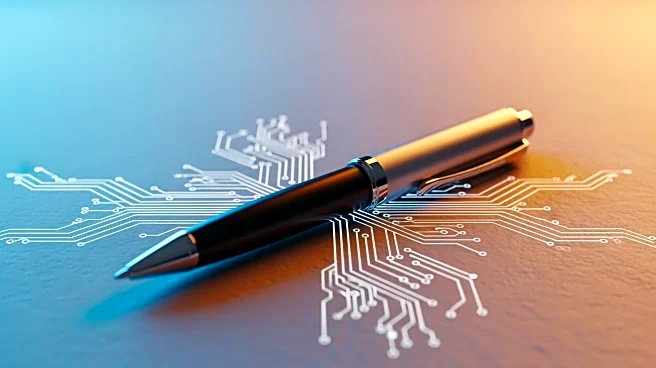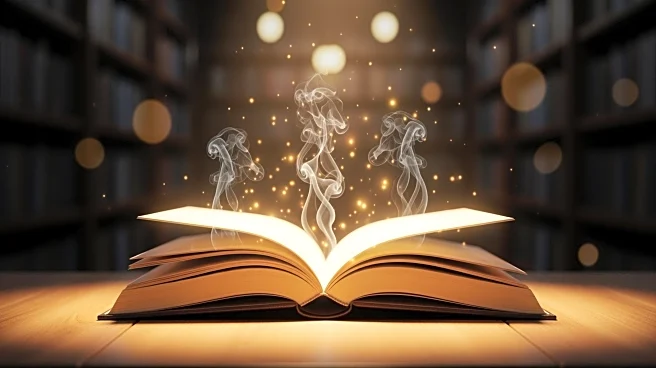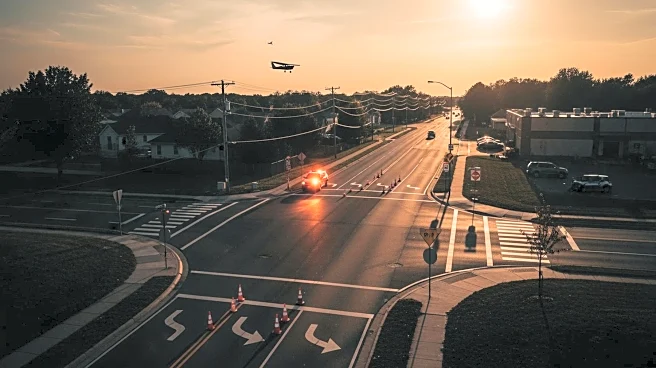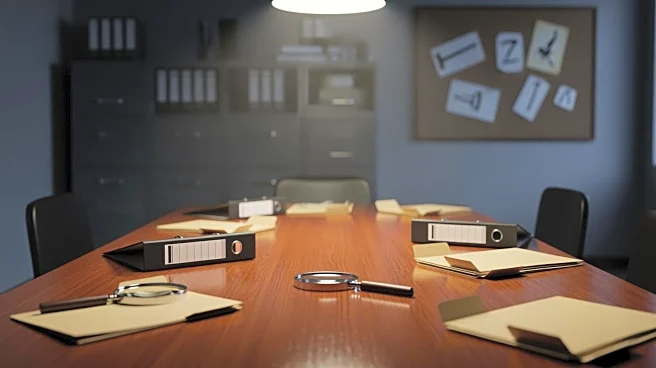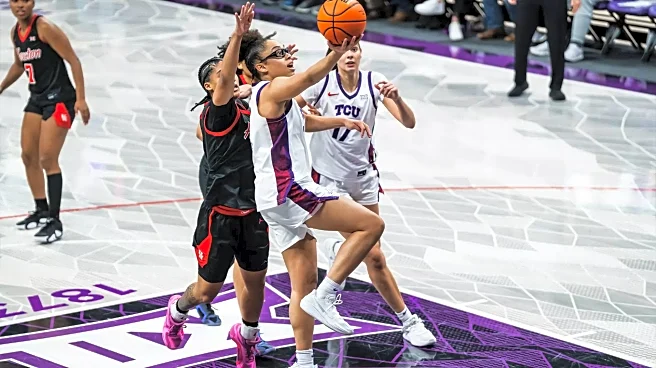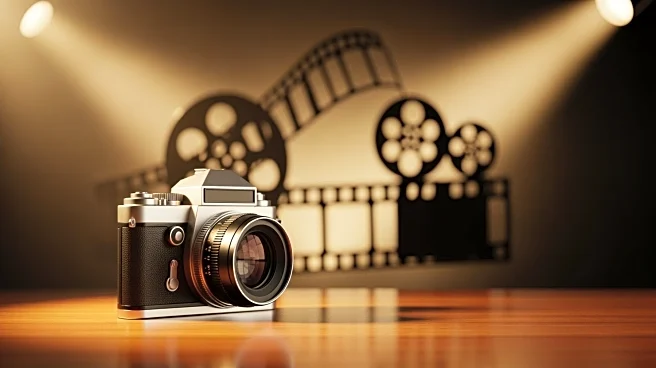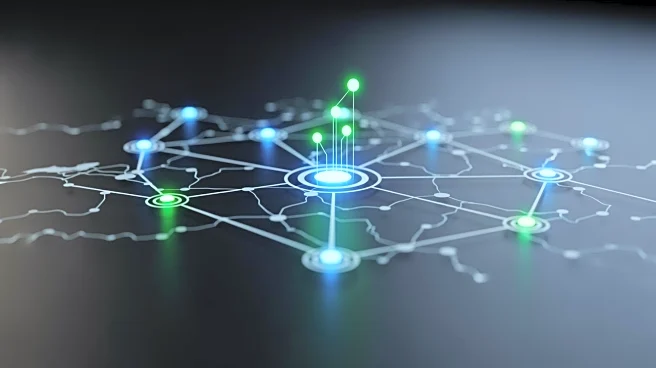What's Happening?
In Japan, a legal case has emerged involving the unauthorized use of an AI-generated image, marking a significant moment in the country's copyright law. The case involves a 27-year-old man from Chiba prefecture who allegedly used an AI-generated image, created
by another individual using Stable Diffusion, for the cover of his commercially available book without permission. The original creator reportedly used over 20,000 prompts to generate the image, which has led authorities to consider it a copyrighted work under Japan's Copyright Act. This act defines a copyrighted work as a creatively produced expression of thoughts or sentiments within various domains. The case has been referred to the Chiba District Public Prosecutors Office, highlighting the complexities of determining copyright status for AI-generated content.
Why It's Important?
This case is pivotal as it challenges existing copyright frameworks by introducing AI-generated content into legal considerations. The outcome could set a precedent for how AI-generated works are treated under copyright law, impacting creators who use AI tools extensively. If AI-generated content is deemed copyrightable, it could lead to stricter regulations and protections for creators, influencing industries reliant on AI for creative processes. Conversely, it may also prompt discussions on the limitations of AI in producing truly original works, affecting companies and individuals who utilize AI for content creation. The case underscores the need for clear guidelines on the intersection of AI technology and intellectual property rights.
What's Next?
The legal proceedings will likely explore the extent of human involvement required for AI-generated content to qualify as a copyrighted work. This could lead to new standards for evaluating the creative input in AI-assisted creations. Stakeholders, including legal experts, AI developers, and content creators, may engage in discussions to establish clearer criteria for copyright eligibility. The case may also influence international perspectives on AI and copyright, prompting other countries to reassess their legal frameworks in light of technological advancements.
Beyond the Headlines
Beyond the immediate legal implications, this case highlights broader ethical and cultural questions about the role of AI in creative industries. It raises concerns about the authenticity and originality of AI-generated works, challenging traditional notions of creativity and authorship. As AI continues to evolve, societies may need to reconsider the value placed on human creativity versus machine-assisted production, potentially reshaping cultural and artistic landscapes.
